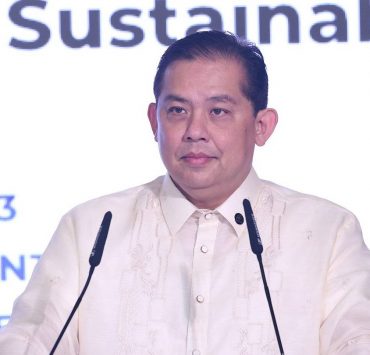Time-bound tax refund
Last Jan. 5, President Marcos signed into law Republic Act No. 11976, or the Ease of Paying Taxes Act, which aims to increase the collection of taxes by making the process easier for taxpayers.
The law makes it less cumbersome and tedious for taxpayers to comply with their obligation to share part of their earnings with the government to enable it to meet its responsibilities to the nation.
There is no denying that, except for taxes that are collected at source or on “creditable withholding basis,” paying taxes here can be a pain in the neck if done in person, and expensive if the services of a tax consultant have to be engaged to ensure compliance with reportorial and payment requirements.From the way many of the provisions of the law have been crafted, it is evident that the lawmakers who participated in its preparation have or have had hands-on business experience. Take the case of micro businesses, i.e., those that have gross sales of less than P3 million, and small businesses, i.e., those that have gross sales of P3 million to less than P20 million.
To spare them from time-consuming paperwork in the preparation of their income tax returns (ITR), the law requires that their ITRs should not exceed two pages. In addition, the penalties for delay or nonpayment of their income tax have been reduced.
These provisions would encourage them to be tax compliant and be taken out of the proverbial “underground market” that is often outside the radar of the Bureau of Internal Revenue (BIR).
Then there is the relief, although “postmortem” in character, that has been given to taxpayers who believe they should not have been ordered by the BIR to pay certain taxes but had to do so to avoid possible legal complications, or had overpaid some taxes, and want some or all of them refunded.
It is common knowledge that when a taxpayer, usually if it’s well-known or enjoys a good reputation in the community, is unsure on whether or not it is liable for a particular tax or receives a tax assessment from the BIR which it does not agree with, it pays under protest.
After exhausting the administrative remedies for its recovery (which can take months depending on the level of efficiency of the concerned BIR department) and not getting the desired results, the taxpayer would have to go to the Court of Tax Appeals to pursue the claim for repayment.Persuading the BIR to make a refund of its own volition would be like pulling teeth from a chicken. That is understandable because the BIR has a revenue collection quota to meet and any deductions from it to answer for refunds would reflect badly on its leadership.
This time, however, the BIR’s action on claims for refund are time-bound. The law requires that claims for erroneously or illegally collected taxes should be processed and decided by the BIR commissioner “within one hundred eighty (180) days from date of submission of complete documents in support of the application.”
Furthermore, in case the claim for refund is denied, whether partial or in full, the legal and/or factual basis of such denial should be clearly stated.
And here’s the clincher, if any official, agent, or employee of the BIR fails to process and decide that application within that period, that person could find himself or herself in serious legal trouble.
The phrase “submission of complete documents” is tricky. Whether or not the documents submitted are already complete and would therefore trigger the 180-day period count would primarily be the BIR’s call.
To suspend the running of the period, the BIR could demand, among others, the submission of additional supporting documents despite complying with the checklist for refunds, or require the written explanation of certain entries in the application that, in its judgment, will be material in determining the validity of the claim for refund.
Hopefully, when the BIR comes out with the law’s implementing rules and regulations, this issue would be clarified in order to give true meaning to the law’s objective to make claims for refund time-bound. INQ

















